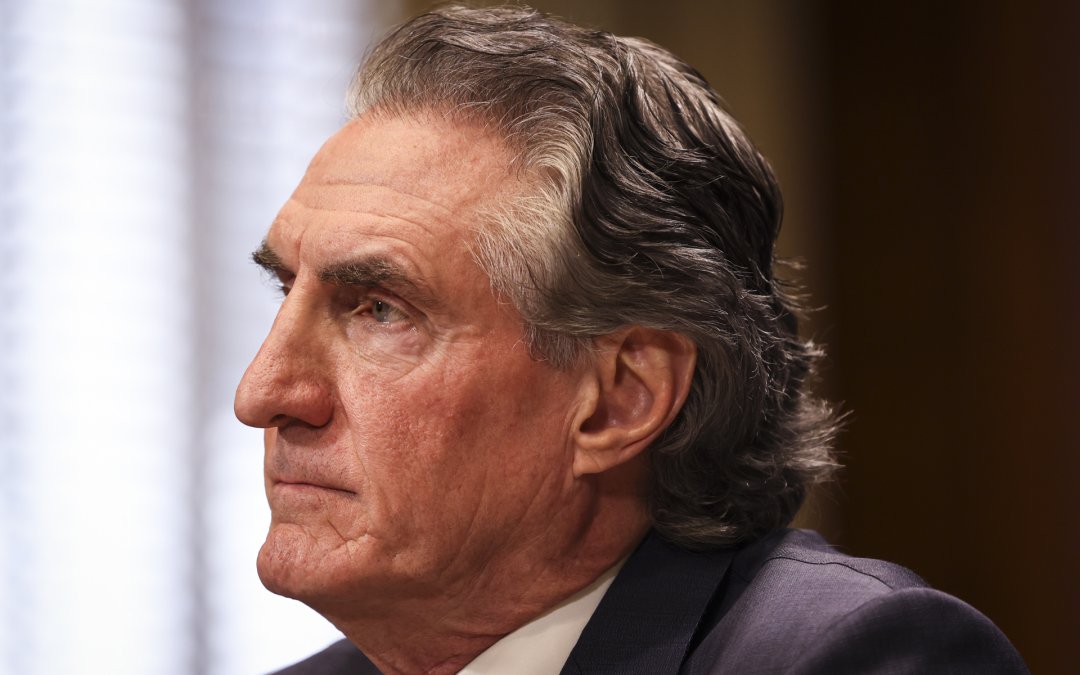WASHINGTON – Doug Burgum, Secretary of the Interior nominee, touted balance and innovation as key to achieving Trump’s vision of “U.S. energy dominance” in an amicable confirmation hearing Thursday.
As Interior secretary, Burgum will oversee approximately 20% of the country’s land, including national parks, and serve as President-elect Trump’s “energy czar.”
To Democrats opposed to drilling on public lands, Burgum stressed the national security importance of American energy independence for national security, championing President-elect Trump’s goals for “US energy dominance.”
“We cannot be in a position where we’re exposed to supply chains that depend on our adversaries,” said Burgum.
Sen. Angus King (D-Maine) pushed back on Burgum’s claims that getting reliable energy requires fossil fuels and that renewable energy sources provide only intermittent energy.
“You would agree, I think, that renewables, or intermittents, plus storage equals baseload,” said King, referring to energy generation that’s dependable.
Burgum, once on the shortlist to be Trump’s vice president, acknowledged the possibility for improvements in battery storage to make renewable energy a more dependable source. But he stressed that battery storage was a far off future and currently not practical.
“We can decarbonize traditional fuels cheaper than we can subsidize some of the renewables and that should be looked at,” said Burgum.
As governor of North Dakota, Burgum supported a carbon dioxide pipeline to store the gas deep underground. This was part of his plan to make North Dakota carbon neutral by 2030, largely through carbon capture technology, rather than scaling back on oil, gas and coal.
Environmentalists argue that capturing carbon dioxide from fossil fuels is too expensive and instead favor switching to solar, wind and other renewable energy sources.
Burgum’s embrace of drilling on public land was in lockstep with many Republicans like Sen. Dave McCormick (R-Pa.) and Sen. Lisa Murkowski (R-Alaska), who both represent states with economies dependent on natural resources.
“Part of our challenge is not lack of resources,” said Murkowski. “Our big challenge, as you know, is access.”
Burgum encountered bipartisan unity from Senators on their desire to preserve the “outdoor economy.”
Sen. Maria Cantwell (D-Wash.) referred to her state’s natural resources as an “economic juggernaut,” and reminded the committee of the $1.2 trillion the outdoor recreation economy generates nationally each year.
Across the ideological aisle, Sen. Cindy Hyde-Smith (R-Miss.) recognized National Park sites “certainly contribute” to state tourism and the local economy.
Burgum readily agreed the “economic economy” must be protected. “We’ve got a big deferred maintenance issue, and we have a big opportunity,” he said, in reference to National Parks.
If confirmed, Burgum would oversee over 500 million acres of public land, nine bureaus and trust responsibilities to 574 federally recognized American Indian Tribes and Alaska Natives, according to the U.S. Department of the Interior.
“We’ve got an opportunity to have innovation, and innovation made around decarbonizing liquid fuels, but so we just have to make sure that we have balance. Because we need it all. We need it all,” said Burgum.


